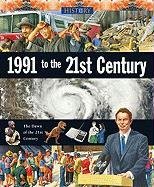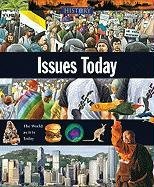-
George Washington's Virginia
John R. Maass
Paperback (The History Press, April 10, 2017)George Washington was first and foremost a Virginian. Born in the state's Tidewater region, he was reared near Fredericksburg and took up residence at Mount Vernon along the Potomac River. As a young surveyor, he worked in Virginia's backcountry. He began his military career as a Virginia militia officer on the colony's frontier. The majority of his widespread landholdings were in his native state, and his entrepreneurial endeavors ranged from the swamplands of the Southeast to the upper Potomac River Valley. Historian John Maass explores the numerous sites all over the Commonwealth associated with Washington and demonstrates their lasting importance.
-
The European Colonization of Africa
Dan Nardo
Library Binding (Morgan Reynolds Pub, Sept. 30, 2010)Presents a history of the colonization of Africa by European countries, from the early invasions of the Portugese and the Dutch, to the establishment of the slave trade, to the extensive holdings of the British Empire of the eighteenth and nineteenth centuries. Z
Z
-
Hand of Vengeance
Douglas Bond
Paperback (P & R Publishing, Aug. 23, 2012)Cynwulf, shunned for being part Viking and part Saxon, lives beneath a beached Viking ship on the outskirts of the Anglo-Saxon community surrounding Tildric Hall. Life is hard enough for him as a half-breed misfit--until the fateful day his battleaxe is found in a dead man's skull. Charged with murder and facing the sword of Anglo-Saxon justice, Cynwulf's longings and dreams now hang in the balance--and so does his life.The Heroes & History Series takes you on epic journeys through turbulent times in history. Douglas Bond gives flesh and blood to heroes as they face war, intrigue, betrayal, loss--and triumph. P
P
-
Versailles to World War II
Neil Morris
Library Binding (Zak Books, Jan. 1, 2010)A stunningly illustrated series created with the help of international specialists and institutions, this series offers the most comprehensive, in-depth summary of world history available at this level; each volume contains comparative world timelines, topical timelines on every spread, table of contents, glossary, index, maps and photographs.
-
Uncovering the Jamestown Colony
Caitlin McAneney
Paperback (Gareth Stevens Pub, Jan. 1, 2017)"Jamestown is celebrated as the first permanent English settlement in North America, but underneath the well-known history is a darker past. In its beginning years, Jamestown was far from successful. In fact, most colonists who came to Jamestown never left; they died shortly after arriving. This fascinating book delves into the challenges of the colony, revealing its successes, tragedies, and even horrors cannibalism! Readers will be surprised to learn about the real-life Pocahontas and John Smith, and eager to find out more about what really happened in this Virginia colony's early days"-- W
W
-
History News: The Greek News: The Greatest Newspaper in Civilization
Anton Powell, Philip Steele, Various
Hardcover (Candlewick, Sept. 2, 1996)At home or at school, these innovative titles make history come alive!Read all About it! Now, with THE GREEK NEWS and THE ROMAN NEWS, life in ancient Greece and Rome is presented in the form of a daily newspaper written at the time. As accessible as your morning paper, THE GREEK NEWS and THE ROMAN NEWS will give young readers the unforgettable sense of actually being a citizen of an ancient nation. W
W
-
The Industrial Revolution
Neil Morris
Library Binding (Zak Books, Jan. 1, 2010)A stunningly illustrated series created with the help of international specialists and institutions, this series offers the most comprehensive, in-depth summary of world history available at this level; each volume contains comparative world timelines, topical timelines on every spread, table of contents, glossary, index, maps and photographs.
-
The Last 500 Years
Jane Bingham, Fiona Chandler, Sam Taplin, Jane Chisholm, Inklink, Giacinto Gaudenzi, Ian Jackson, Jeremy Gower
Hardcover (Usborne Pub Ltd, June 1, 2001)Introduces the highlights of modern history throughout the world, from the voyages of European explorers to the end of the twentieth century, and discusses religion, society, and changes in technology. Q
Q
-
1991 to the 21st Century
Michael Kerrigan
Library Binding (Zak Books, Jan. 1, 2010)A stunningly illustrated series created with the help of international specialists and institutions, this series offers the most comprehensive, in-depth summary of world history available at this level; each volume contains comparative world timelines, topical timelines on every spread, table of contents, glossary, index, maps and photographs.
-
A Story of Civilization in 50 Disasters: From the Minoan Volcano to Climate Change
Gale Eaton, Phillip Hoose
Paperback (Tilbury House Publishers, Jan. 15, 2019)Starred Youth Services Book Review*2016 IBPA Benjamin Franklin Silver Award Winner*The earth shakes and cracks open. Volcanoes erupt. Continents freeze, bake, and flood. Droughts parch the land. Wildfires and hundred-year storms consume anything in their paths. Invisible clouds of disease and pestilence probe for victims. Tidal waves sweep ashore from the vast sea. The natural world is a dangerous place, but one species has evolved a unique defense against the hazards: civilization.Civilization rearranges nature for human convenience. Clothes and houses keep us warm; agriculture feeds us; medicine fights our diseases. It all works―most of the time. But key resources lie in the most hazardous places, so we choose to live on river flood plains, on the slopes of volcanoes, at the edge of the sea, above seismic faults. We pack ourselves into cities, Petri dishes for germs. Civilization thrives on the edge of disaster. And what happens when natural forces meet molasses holding tanks, insecticides, deepwater oil rigs, nuclear power plants? We learn the hard way how to avoid the last disaster―and maybe how to create the next one. What we don’t know can, indeed, hurt us. This book’s white-knuckled journey from antiquity to the present leads us to wonder at times how humankind has survived. And yet, as Author Gale Eaton makes clear, civilization has advanced not just in spite of disasters but in part because of them. Hats off to human resilience, ingenuity, and perseverance! They’ve carried us this far; may they continue to do so into our ever-hazardous future.The History in 50 series explores history by telling thematically linked stories. Each book includes 50 illustrated narrative accounts of people and events―some well-known, others often overlooked―that, together, build a rich connect the-dots mosaic and challenge conventional assumptions about how history unfolds.Dedicated to the premise that history is the greatest story ever told.Includes a mix of “greatest hits” with quirky, surprising, provocative accounts.Challenges readers to think and engage.Includes a glossary of technical terms; sources by chapter; teaching resources as jumping-off points for student research; and endnotes.Fountas & Pinnell Level Z+ color
-
Issues Today
Tony Allan
Library Binding (Zak Books, Jan. 1, 2010)A stunningly illustrated series created with the help of international specialists and institutions, this series offers the most comprehensive, in-depth summary of world history available at this level; each volume contains comparative world timelines, topical timelines on every spread, table of contents, glossary, index, maps and photographs.
-
A Brief History of Afghanistan
Shaista Wahab, Barry Youngerman
Paperback (Checkmark Books, Sept. 1, 2010)An up-to-date look at the political isolation, war, and anarchy that distinguish Afghanistan's history.Praise for the previous hardcover edition:"...very thorough...This work is a good choice for those wanting to familiarize themselves with the roots of the current conflict, and a handy reference for basic information on Afghanistan. Recommended."Choice"Recommended..."Library JournalAfghanistan has long been considered a remote and uninviting country to all but its closest neighbors. This lightly populated agricultural and pastoral nation has guarded its independence in the age of European imperialism thanks in large part to its limited perceived value. Political isolationreinforced by a conservative tribal culturekept most of the cultural and economic changes of the modern world at bay. Slowly, however, modern ways and values began to penetrate into the capital city of Kabul.A Brief History of Afghanistan examines this country's isolation and how it found itself involved in 30 years of war and anarchy. This resource provides extensive background information so readers can understand the issues and make informed judgments of their own. Offering a clear, concise account of this country's historical and cultural heritage, from 3000 BCE to the present, this insightful book explores the culture and politics of the Pashtun tribes whose homeland extends across much of Afghanistan and northern Pakistan, as well as the Taliban insurgency and the relationship between local leaders and the central government in Kabul.Coverage includes:From the rise of Islam to the Afghan state The birth of modern Afghanistan Twentieth-century monarchy Two revolutions Soviet Afghanistan Afghanistan in rebellion Mujahideen rule The Taliban era Afghanistan under KarzaiThe Taliban resurgence.